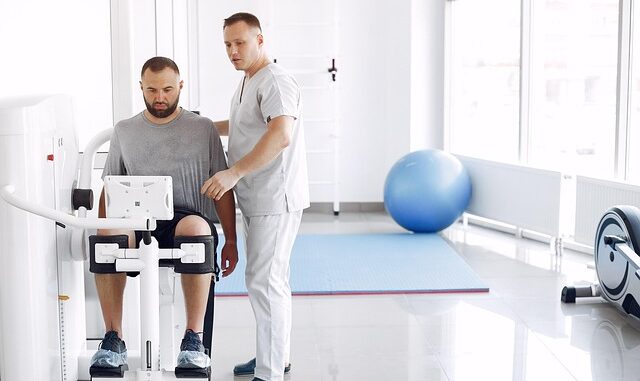
Summary
This article provides three essential tips for a successful return to work after rehab: take it slow, communicate effectively, and prioritize self-care. By following these steps, you can navigate this transition smoothly and maintain a healthy work-life balance. Remember, recovery is a journey, and returning to work is a significant milestone.
** Main Story**
So, you’re heading back to work after rehab, huh? That’s huge! It’s a real milestone, and while it can feel like climbing a mountain, with the right approach, you can make it a smooth transition. Let’s walk through some practical tips to help you successfully reintegrate and protect your recovery.
1. Slow and Steady: The Gradual Return
Don’t try to be a superhero right out of the gate. Trust me, I’ve seen it backfire. Rushing back into the deep end can be incredibly overwhelming; it’s like going from zero to sixty in a split second. Instead, think about a phased approach. Maybe start with part-time hours or a lighter workload.
- This gives you time to adjust, you know?
- It’s about easing back in without feeling like you’re drowning.
This gradual return is beneficial for several reasons; it allows you to slowly acclimate to the demands of the workplace, while still prioritizing your recovery. Starting slow gives you a chance to rebuild your stamina, and your confidence too, at your own pace. If you’re going back to your old job, have an open conversation with your employer about setting up a phased return. If that’s not an option, think about volunteering or working part-time somewhere new to gain experience and rebuild your confidence.
2. Open Communication: Building Your Support System
Seriously, honesty is the best policy here, especially with your employer. Talk about your return-to-work plan, including any accommodations you might need. Whether it’s a flexible schedule to attend therapy appointments, or maybe some adjustments to your workload, being upfront about your needs can create a supportive environment.
And it is also really important to build a strong support system at work too. This might mean confiding in colleagues you trust, joining an employee assistance program, or finding a mentor who gets where you’re coming from. A supportive environment is key for your long-term success.
Talking to your supervisor doesn’t have to be a scary conversation. Having an honest and open discussion about your treatment, recovery plan and any potential challenges, can help manage expectations and get you the support you need. You’re not obligated to share personal information about your recovery with colleagues, of course. However, when it feels right, sharing your experiences can really help build a supportive network at work and help break down stigma.
3. Self-Care: Making Yourself a Priority
Recovery isn’t just about abstaining; it’s a holistic journey! As you’re getting back into the swing of things at work, don’t forget to take care of yourself, both physically and mentally. Keep up those healthy habits, you know, regular exercise, a balanced diet, and enough sleep. Keep up any stress-reducing activities that help you. And don’t hesitate to reach out to therapists, counselors, or support groups if you need to. It means keeping up with your recovery program and making a relapse prevention plan that’s tailored to your workplace environment.
Self-care shouldn’t be an afterthought; it’s actually, a vital part of maintaining sobriety. Identify potential triggers in the workplace, and come up with coping strategies in advance. Maybe it involves setting boundaries with coworkers, taking breaks when you need them, or practicing mindfulness. Because building healthy coping mechanisms is crucial for handling workplace stress and preventing relapse. And regular self-care also helps you build resilience, improve your focus, and boost your overall job satisfaction.


Be the first to comment